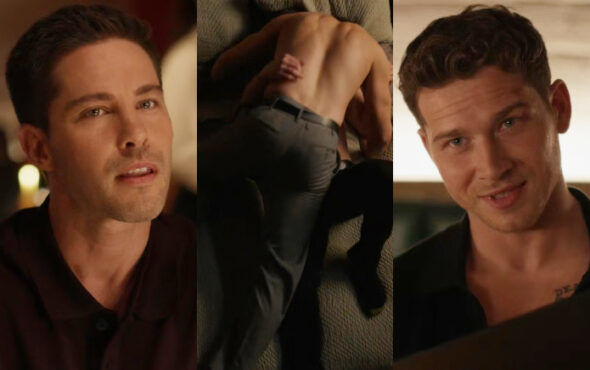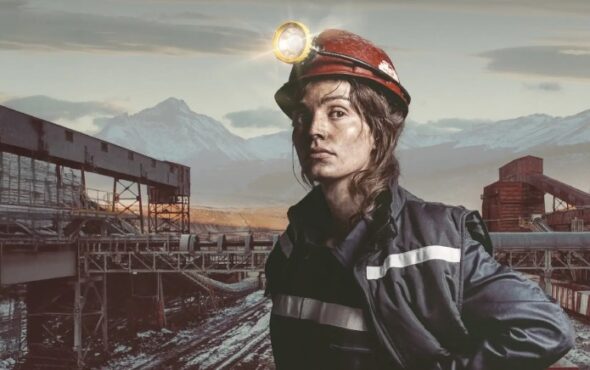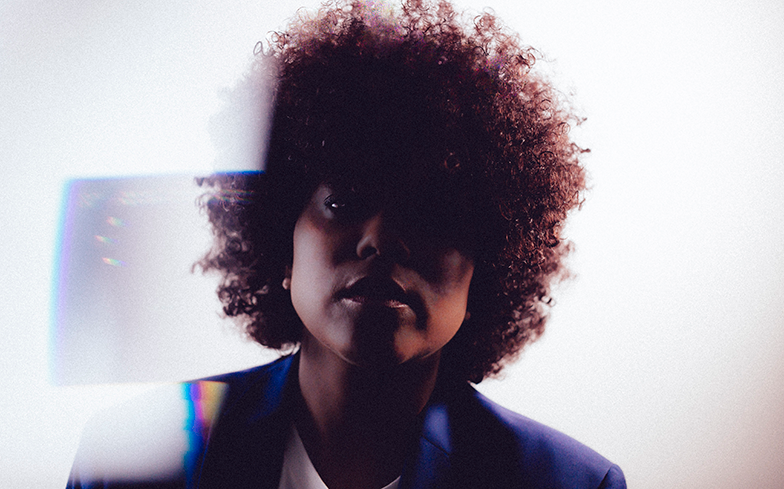
“That’s how Lanta was born, making pop without giving a damn about what anyone else thought.”
In 2015, British singer-songwriter Lanta initially made her mark on the music industry with her birth name Kimberly Ann, as the lead singer on Sam Feldt’s remake of Robin S’ iconic dance classic, Show Me Love.
The summer smash made a huge impact on the UK charts, peaking in the top five. Thanks to its success, music moguls wanted to market Lanta as the next big dance artist, despite her solo work channelling more of an “acoustic, Tracy Chapman vibe”.
“I was like, ‘No, no. I am going to stop this train and get off,'” Lanta admits. “They actually said, ‘We think you’re crazy.’ I said, ‘Well, I probably am but I would rather sell 5000 copies of a song I love than five million of a song I hate.’”
It all worked out for the better. Now, Lanta is releasing music that feels completely authentic to her; chill, dreampop anthems with “an obvious, big heart wrenching chorus that just distills complex emotions down to a simple, impactful line.”
We caught up with the star to discuss her journey in the music industry, why it’s so important for her to be open about her mental health struggles, and the creation of her incredible new LGBTQ comic book.
When did you discover your love for music?
I entered a singing competition at school when I was 14, it was like some kind of rip-off of Pop Idol. Before that, I was just the totally weird quiet kid with acne who was a bit overweight. When I entered that competition, I suddenly realised that I could sing, and not everybody could sing the way I could sing. People were then a lot nicer to me and I felt really confident and alive on stage, whereas off stage I couldn’t even go into a stop and ask someone for the time. I felt like music was what I needed to do to express the things I struggled to express emotionally.
It sounds like a movie moment, when the shy kid blossoms into a powerhouse.
It’s really cliche, but it’s true! I was a real emo, wannabe goth kid, which nobody ever believes! I was mainly listening to Radiohead, System of a Down but was also secretly listening to Damien Rice and Billy Holliday – so it’s a real mismatch!
Growing up, was there anyone in the music industry that you could relate to?
The closest person would be Mel B. Obviously not musically, but someone who just looked like me, and that television presenter Margherita Taylor with the long curly hair. I grew up in a predominantly Caucasian area. My dad’s from here and my mum’s from the Caribbean but my half sister is fully black, so I didn’t meet a full mixed race woman for a long time. Then the Spice Girls came in. There wasn’t a huge amount of representation going on.

How did you find being at the intersection of two different identities?
Growing up, I wasn’t white enough for the white kids or black enough for the black kids. I went to three different secondary schools and I just wanted to find somewhere I could be left alone. I was a bit bullied. It was like Goldilocks and the three bears; porridge-wise I wasn’t quite right for many people. I guess that’s why I turned to writing songs. When I was 14, I moved to Croydon and started to settle in a bit more, and it was cool to embrace more of my Caribbean side. But also, it’s fine to watch Sense and Sensibility. I can do both.
So how did you get your start in the industry?
I released an independent EP, it was very acoustic, Tracy Chapman vibes. The head of Radio 1 was sent one of my songs and I didn’t have any industry connections, it was a mad thing of someone I went to school with heard it and sent it to him. He tweeted about it and a week later, I got a message from a website saying they wanted to feature my song. I woke up one morning with three missed calls from Warner. I was like, ‘Is this some kind of prank?’ I rang them back and they said, ‘Hi, I want to speak to the manager of Kimberly Ann.’ I was like, ‘I don’t have a manager!’ They asked me to come in and I had a full-time job, so I had to call in sick. I ended up going round the circus of major label records, ending up signing a record deal with Polydor. It lasted three years. I don’t think they knew what to do with me. I did a cover of Show Me Love, an acoustic cover, and it blew up and went to number four in the UK charts. It was very different from my stripped-back stuff. The label said they wanted me to be a big dance artist like Ellie Goulding or Jess Glynne, they had it locked in their head. I was like, ‘No, no. I am going to stop this train and get off.’
You took the power back.
They actually said, ‘We think you’re crazy.’ I said, ‘Well, I probably am but I would rather sell 5000 copies of a song I love than five million of a song I hate.’ At that point, they were like, ‘There is no help for this girl.’ After that, I just wanted to write for other people for a while. I became big songwriting pop whore and after a while, I wanted them, so I made myself into a weird pop star.
Would you say the music you’re putting out right now is more authentic to you?
Yeah, basically. Leaving a major record deal is like losing a job, so I kind of retreated and stayed at home, drank a lot of wine and listened to a lot of old school records with my wife. I realised I just really miss an obvious, big heart wrenching chorus that just distills complex emotions down to a simple, impactful line. I was like, ‘People are not doing this anymore.’ A lot of choruses now are just vocal chops and stuff, which is awesome, but let’s do something else. I hit the studio and these, Janet Jackson, Phil Collins-esque songs fell out. I thought, ‘Great, what the fuck am I meant to do with these? Do I want them? Maybe I should sing them?’ That’s how Lanta was born, making pop without giving a damn about what anyone else thought.
What’s the story behind your new song Drinking Too Much?
The story behind is sort of the soundtrack to many a night out in Soho after an ugly break-up. It reminded me of when I’d go out with my friends if there’d been a break up. Everyone’s first thing would be ‘Cool, you’re coming out tonight. Wherever you are, I’m coming to meet you.’ And there’s a real therapeutic element to going out, being in a loud place, letting your thoughts drown out a bit, and having your support network around you, and it’s okay if you start crying on the dancefloor. The amount of times I’ve gone out to Heaven or whatever, and gone out into the smoking area, and the conversations you come across in the smoking area of a gay club or bar is deep, guys. You just ask for a lighter, and then suddenly you go into ‘I’ve been going through a break-up too, blah, blah, blah’ and I think there’s an element of support. And yeah maybe you’ll hook up with someone later that night, it’s kind of a part. But I wanted to explain that weird juxtaposition after a break up, where a part of you wants to stay inside and hide, but a part of you wants to go out and erase that person completely. Drinking Too Much is definitely the most poppy, popped-up, dancing production I’ve ever done, but lyrically it’s still quite crushing. There’s been plenty of times I’ve been on the dancefloor just yelling out lyrics trying to have a bit of release.
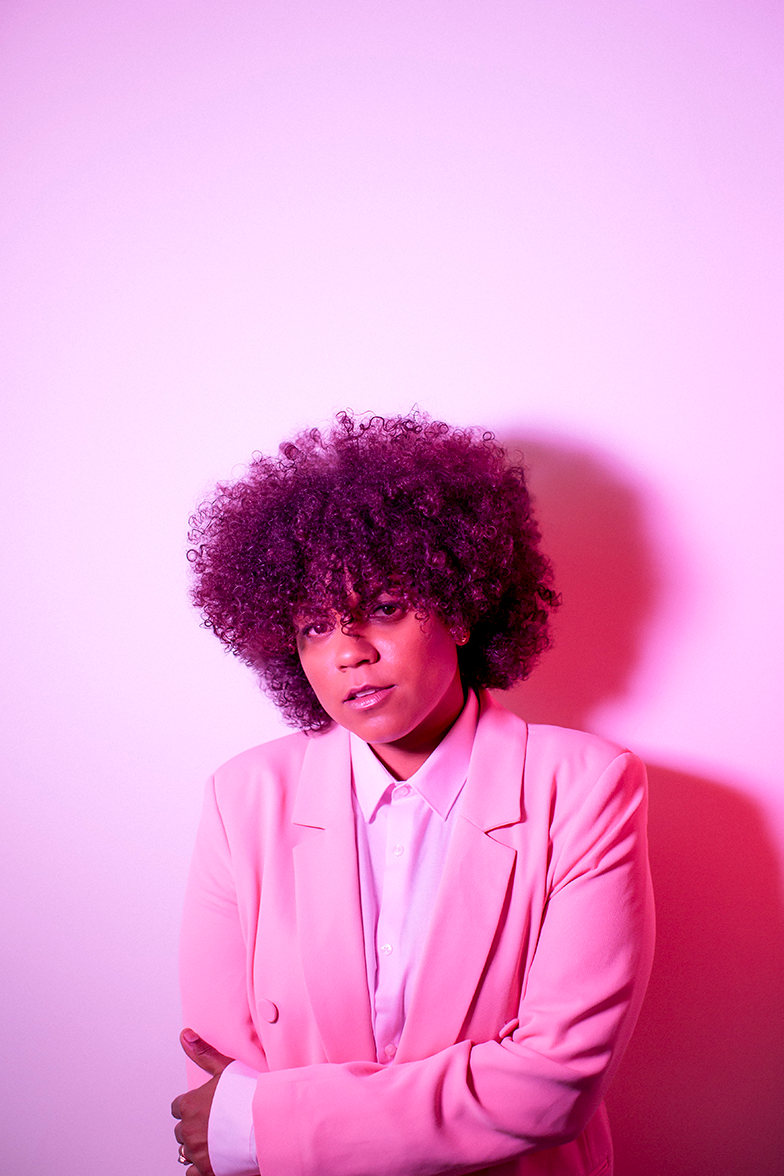
You’ve been fairly open about some struggles you’ve had with your mental health. Is this important for you to do, be as open as possible?
Yeah, I think so. I know that talking about mental health right now is popular, but I think that’s really good. I’ve heard people saying that talking about mental health is so cliché, and I’m just like, ‘Shut up!’ If your Instagram post helped one person call up their friend and say ‘I’m not okay’, or helps one person call in sick at work and be like ‘I couldn’t get out of bed today, I’ll try tomorrow,’ I think that’s a real success. Especially in the music industry, lots of thing we’re behind in, we haven’t caught up. So in a weird way, this is our mental health coming out moment for the music industry. And we’ve lost a lot of great musicians and artists through generally as an industry not talking widely enough about this. And as musicians our music is so entangled in our identity and who we are. It gets batted about a lot being in a campaign, and you have to instate yourself, and know yourself, and create your mental barriers and know what’s healthy for you and what isn’t. And I feel as a person, the more I’ve spoken about who I am, and accepting who I am, the happier I’ve felt. If somebody likes or dislikes something I do, I feel really secure in that because I’m not trying very hard to be anyone else. The more transparent I am, the more free I feel. It’s not completely motivated by helping others, which is amazing as well, but it really helps me to own my stuff and it’s self-reassuring to go like ‘Cool, I’m having a photoshoot today, I hate how I look today, and I don’t want this to happen, but I’m doing it anyway because I should be able to do this.’ I can’t go out shouting about self-acceptance, but then go cancelling photoshoots because I feel fat today. It’s not, ‘I went to therapy, and now I’m cured thing’ it’s always going to be an on-going process, which is why there’s always something to talk about, because it’s all a journey for everyone.
You’ve been in the industry for a quite a while now – what kind of obstacles have you faced?
It doesn’t feel very balanced in the industry, it feels like a lot of people who hold the keys to you going forward, it doesn’t feel like a collaboration. Sometimes it feels like a dictation. And I think as artists we need to feel more confident in feeling more empowered and being, ‘This what I want to do, and this how I want to do it.’ But I think the rise of artists being able to do things independently and then getting to work with the big players really gives them more leverage. It you’re already hitting great playlists, and generating a great income from your music, and a label wants to get involved, you can be like, ‘I’ve been doing all this without you, so what can you bring to the table?’ I think things are changing, I think we’ve still got a way to go in terms of empowering females to succeed and own the credits to their work. I produced a lot of my songs before and didn’t necessarily have the courage to claim my credits. But I feel like we encourage male artists to self-produce and write for themselves and others a lot more. And I’ve even had my own unconscious bias, as all of the other writers I’ve worked with, 98% have been male. So now I’m making a real conscious effort for the producers I work with. So I worked with my wife to make my latest songs, and it’s just a female produced project. I think we’ve got a way to go in empowering our female artists.
There so many queer females thriving in the industry at the moment. It feels like it’s taken so fucking long to get to this point, why do you think it’s all happening now?
I think there’s been a shift in public perception on sexuality, and also there’s been a shift in the stereotypical view of how a lesbian or bi woman presents. Before, if you were in a same-sex relationship as a woman, and you wore a dress, people would be like, ‘Oh, I thought you were a lesbian?’ I think from people in the public eye being a lot more open about the fluidity of their sexuality, has broken down some of the stereotypes, which has made it easier for actresses, artists to be like, ‘Yeah, I have a girlfriend right now’ and not feel like they have to conform to any lesbian ideal. I feel like what we’re learning now, is that the way people present or identify, with sexuality or fluidity, is that they’re a lot more open-minded about letting people exist and be who they are. It’s not always a simple box to tick to find out who someone is, and some people don’t want labels at all. I think that education is happening, and I’m so happy to see it. As a woman of colour, it’s been really hard. It felt like I had to come out twice, I came out to everyone, and then had to come out to the Caribbean side of my family. I know people from an Asian background who still aren’t out to their families, as it’s not safe for them to do so. I still think we have a long way to go, but I love that we are laying these beautiful foundations for everyone to feel like they can just be themselves. I love that Sam Smith is just killing it, and I love that it’s bringing out some really important conversations about gender-specific awards in music, but also in acting as well. Do we need it? Do we need to have three-different categories? Or do we just need ‘Best Performance?’ I don’t know, but I love that we’re openly talking about it, and everyone’s been invited to the table for that conversation, the way it should be. No one’s going to get away with excluding people anymore, and we’re all going to shout out to represent each other, and it has to be that way. I don’t stand for any form of injustice around me. I’m really trying to learn how to be a better trans ally as well, and that’s education. And I think we just need to learn, and everyone’s trying to learn, and that’s nice.
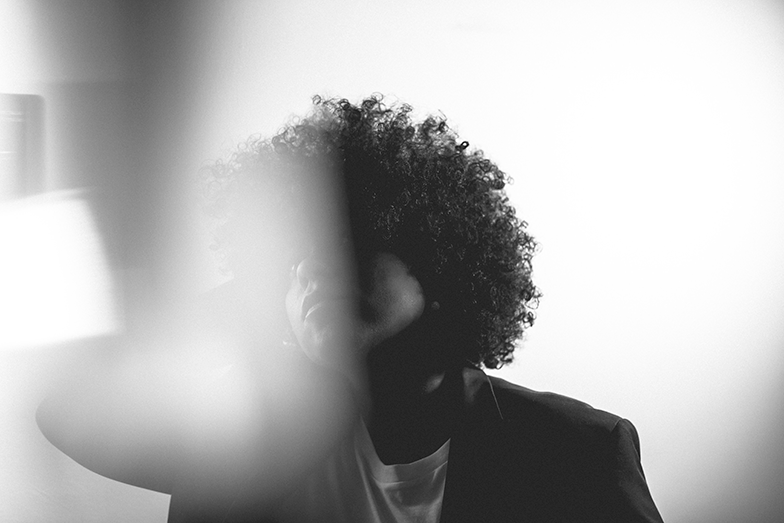
As a queer artist and a queer artist of colour, do you feel like you have a responsibility to represent both of your communities?
I do, and I never did. I used to have issues, I used to not want to talk about it whatsoever, just leave it where it was. It’s my private life, it doesn’t have anything to do with anything, and that was a part of me embracing and who I am. But it changed around my wedding. Weddings are a time when you realise how traditional people around you are. When we sent out our wedding invitations, one family member posted on our family WhatsApp about how homosexuals are perverts. And I was like, ‘You could just RSVP saying no, like normal people.’ So with that, I had to confront my worst fear, which was the black side of my family rejecting me. And it gave me a real opportunity to come out and say I was really proud of who I am, everything I do, and the woman I love is going to marry me, and we’re going to live a great life. And I was like, ‘I need to have this involved in my music as well, it’s such a huge part of who I am now.’ And I’m so proud that I feel that it’s important to include that in my narrative. I really want to reach out to be the person I needed to see when I was growing up. And that isn’t the squeaky-clean role model, but someone who’s still figuring it out, who wants you to know, ‘I’m out, I’m fine, and I’m much happier than if I was trying to be or do something else, and one day it’s just going to be fine.’
You’ve written and created a comic book that explores sexuality and identity. I had a read through of it the other day, and it’s fantastic. Are you doing an Issue 2?
Yeah, so I haven’t actually released that yet. There was a possible interest from someone who is interested in funding and making a digital video version of it as well. I was talking to a children’s publisher as well, but everyone was just so long, I was like, ‘I’m going to put it out.’ Basically, it’s a four-part series. I was a huge nerd growing up, and I loved comic books. I wasn’t a great reader, so comic books really helped me work through my dyslexia. I had the chance to get engaged with great narratives, but not be intimidated by the text. But there wasn’t a lot of representation in those comics either. A lot of the comic books I read, which was just vampires and stuff, the way that women were portrayed was a bit interesting, a bit misogynistic. They were there as a damsel-in-distress or as a sexual purpose. I got back into comics recently, and was really relieved to see that the narratives had moved on, and there were more layered female characters. But there wasn’t a lot of trans representation, or layers of mental health, or different learning conditions. So I thought I’d write a comic book series with a trans superhero, where they save the world and being yourself is the thing that unlocks the answers to saving the world. I wanted to write this insane, dictatorial government, like Theresa May on crack, where they think that individualism has caused the biggest drain on resources. We’ve spent too long telling everyone they can be whoever they want to be and be themselves, so it’s way easier to control everyone’s minds, behaviours and exposures to art and literature and information, and tell them how to live, and what to eat, and what to do. And anything that breaks too far out of that mould, we need to eradicate as it threatens our society. And I think that’s what’s been happening slowly with the wave of things in our politics over here. So I was like, ‘Let’s write a bit of a hyped up version of what’s been happening over here.’ And normally in popular culture, gay characters are the funny gay best friend, but I wanted the gay characters to be the main event, the lead characters and it’s because of their unique experience is how they save the world.
What can we expect from you in the future?
The project is going to get bigger and better, I feel. The more and more I’m writing, the songs are getting more poppy, and it’s just a complete journey of self-acceptance, so lyrically no holds barred. Robyn is basically my idol, so it’s the new stuff that’s coming out is Lanta meets Robyn, Georgia, Tegan and Sara. That’s the world I’m swimming in, and loving it. For live shows, my main idea with that is wanting to put on a show and it feel like a really safe space for people to be who they are. There’ll be a ‘no arsehole’ policy, it’s a good space, drama-free. I’d love for people to be able to show up as however they feel they want to represent themselves on that day and feel like they have the support of everybody in the room. Whether you want to dance, sing, cry, lie down. It’s fine. We want to create that environment.
Lanta will be performing at Sebright Arms in London on 26 November – you can purchase tickets here.


